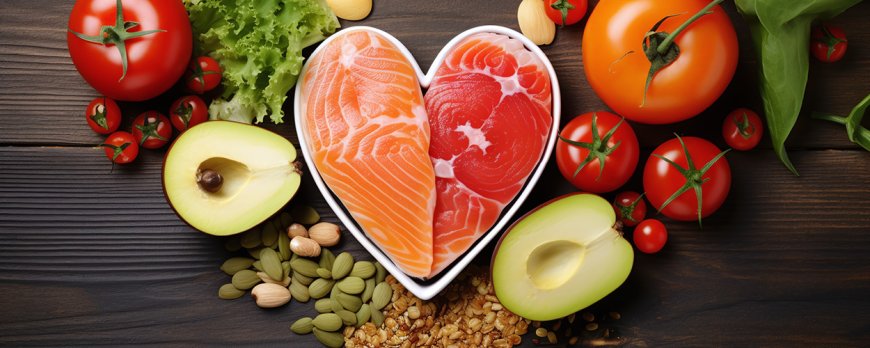Natural sources of CoQ10
Unlock the power of your health with Natural sources of CoQ10. Explore how you can incorporate them into your diet for optimum wellness.

Natural sources of CoQ10
Discover the natural sources of CoQ10 and how they can enhance your overall health and well-being.
Key Takeaways:
- CoQ10 is a nutrient found naturally in the body and in various foods.
- It acts as an antioxidant and is involved in metabolism.
- CoQ10 supplements have been used to treat certain conditions, but research is ongoing.
- Potential benefits of CoQ10 include heart health, brain health, fertility, and migraine relief.
- Natural food sources rich in CoQ10 include organ meats, fatty fish, vegetables, fruits, oils, legumes, nuts and seeds, and whole grains.
Coenzyme Q10 (CoQ10) is a nutrient that occurs naturally in the body and is found in various foods. It acts as an antioxidant and is involved in metabolism. While most healthy individuals have sufficient CoQ10, supplements have been used to treat certain conditions such as high blood pressure and adverse effects of cholesterol drugs. Although research is ongoing, CoQ10 may also have potential benefits for heart health, brain health, fertility, and migraine headaches. Natural food sources rich in CoQ10 include organ meats (such as beef heart and liver), fatty fish (such as trout and salmon), meats, vegetables (such as broccoli and spinach), fruits (such as strawberries and oranges), oils (such as soybean and canola), legumes, nuts and seeds (such as pistachios and sesame seeds), and whole grains. CoQ10 supplements are available, but dosage should be determined based on individual needs and medical advice. It is best taken with a meal that contains fat for better absorption. While side effects are generally mild, caution should be exercised for individuals with certain conditions or on specific medications. It is also important to note that CoQ10 supplements are not recommended for children.

CoQ10-rich foods: A treasure trove of health benefits
CoQ10-rich foods not only offer a delicious addition to your meals, but also provide a wealth of health benefits for your body. Coenzyme Q10 (CoQ10) is an essential nutrient that acts as an antioxidant and plays a crucial role in metabolism. Incorporating foods rich in CoQ10 into your diet can support your overall well-being and enhance your health.
One of the key benefits of consuming CoQ10-rich foods is their potential to improve heart health. CoQ10 has been shown to help support a healthy cardiovascular system by promoting proper blood flow and reducing oxidative stress. Additionally, research suggests that CoQ10 may have positive effects on brain health, supporting cognitive function and potentially helping to reduce the risk of neurodegenerative diseases.
When it comes to fertility, CoQ10-rich foods can also play a role. CoQ10 has been studied for its potential to enhance reproductive health by improving sperm quality and supporting egg quality in women. Including these foods in your diet may contribute to a healthier reproductive system.
CoQ10-rich foods to incorporate into your diet:
- Organ meats: Beef heart and liver
- Fatty fish: Trout and salmon
- Vegetables: Broccoli and spinach
- Fruits: Strawberries and oranges
- Oils: Soybean and canola
- Legumes
- Nuts and seeds: Pistachios and sesame seeds
- Whole grains
While it's possible to obtain CoQ10 from natural food sources, CoQ10 supplements can also be used to ensure an adequate intake. However, it's important to consult with a healthcare professional to determine the appropriate dosage and to address any specific deficiencies or medical conditions. When taking CoQ10 supplements, it's recommended to consume them with a meal that contains dietary fat for better absorption.
Keep in mind that while CoQ10 supplements are generally safe, individuals with certain conditions or those taking specific medications should exercise caution. It's also important to note that CoQ10 supplements are not recommended for children. By incorporating CoQ10-rich foods into your diet and considering supplements when necessary, you can make a positive impact on your overall health and well-being.
The Power of CoQ10 for Heart Health
CoQ10 has emerged as a potential ally in maintaining a healthy heart, with studies suggesting its positive impact on cardiovascular health. As an antioxidant, CoQ10 helps protect the cells of the heart from damage caused by harmful free radicals. It also plays a crucial role in energy production within the heart muscle, which is essential for maintaining its optimal function.
Research has indicated that CoQ10 supplementation may have several benefits for heart health:
- Promotes healthy blood pressure levels: CoQ10 has been shown to help regulate blood pressure by supporting the dilation of blood vessels and reducing oxidative stress, contributing to overall cardiovascular wellness.
- Supports optimal cholesterol levels: CoQ10 may help maintain healthy cholesterol levels by preventing the oxidation of LDL cholesterol, commonly known as "bad" cholesterol. This can help reduce the risk of plaque formation in the arteries, which can lead to heart disease.
- Enhances heart function: Studies have suggested that CoQ10 supplementation can improve heart muscle strength and contractility, resulting in better overall heart function and increased exercise capacity.
It is important to note that while CoQ10 shows promise in supporting heart health, it should not be used as a substitute for medical treatment or prescribed medications. Consulting with a healthcare professional is always recommended before starting any new supplements or making changes to your healthcare routine.
Boosting Brain Health with CoQ10
Emerging research suggests that CoQ10 may play a vital role in supporting brain health, potentially enhancing cognitive function and overall mental well-being. As a powerful antioxidant, CoQ10 helps protect the brain from oxidative damage caused by free radicals. This protection is crucial for maintaining the health and functionality of brain cells.
Furthermore, CoQ10 is involved in the production of adenosine triphosphate (ATP), which is the main energy source for cells, including those in the brain. Adequate levels of ATP are essential for optimal brain function, including memory, concentration, and mental clarity.
In addition to its antioxidant and energy-supporting properties, CoQ10 may also have a positive impact on neurotransmitters. Neurotransmitters are chemical messengers that facilitate communication between brain cells. By promoting the synthesis and release of neurotransmitters, CoQ10 may help regulate mood, emotions, and overall cognitive function.
Here are some natural food sources rich in CoQ10:
- Organ meats (such as beef heart and liver)
- Fatty fish (such as trout and salmon)
- Meats
- Vegetables (such as broccoli and spinach)
- Fruits (such as strawberries and oranges)
- Oils (such as soybean and canola)
- Legumes
- Nuts and seeds (such as pistachios and sesame seeds)
- Whole grains
While CoQ10 can be obtained from these natural food sources, some individuals may find it beneficial to supplement their diet with CoQ10 supplements. It is important to consult with a healthcare professional for guidance on the appropriate dosage and to determine if supplementing with CoQ10 is suitable for individual needs.
Remember, when taking CoQ10 supplements, it is recommended to consume them with a meal that contains fat to enhance absorption. It is also important to note that CoQ10 supplements are generally well-tolerated, but side effects may occur in some individuals. If you have any pre-existing medical conditions or are taking medications, it is important to discuss the use of CoQ10 supplements with your healthcare provider to ensure safe and effective usage.

CoQ10 and Fertility: Enhancing Reproductive Health
Discover how CoQ10 may support reproductive health, offering potential benefits for both male and female fertility.
Coenzyme Q10 (CoQ10) is a naturally occurring nutrient that plays an essential role in the body's energy production and acts as a powerful antioxidant. While CoQ10 is present in every cell, research suggests that it may have specific benefits for reproductive health, making it an intriguing option for individuals seeking to enhance fertility.
For women, CoQ10 may help improve egg quality and overall reproductive function. As women age, the quantity and quality of their eggs naturally decline. CoQ10's antioxidant properties help protect eggs from oxidative stress, which can contribute to age-related fertility decline. By providing vital cellular energy, CoQ10 supports ovarian health and may improve the chances of successful conception.
CoQ10 also holds promise for men's fertility by promoting sperm health and count. The antioxidant properties of CoQ10 help protect sperm cells from oxidative damage, increasing their motility and overall quality. This nutrient may also improve sperm count and DNA integrity, ultimately boosting the chances of conception for couples trying to conceive.
To naturally boost your CoQ10 levels, incorporate foods rich in this nutrient into your diet. Some excellent food sources include organ meats like beef heart and liver, fatty fish such as trout and salmon, vegetables like broccoli and spinach, fruits like strawberries and oranges, oils such as soybean and canola, legumes, nuts and seeds like pistachios and sesame seeds, and whole grains.
While dietary sources can contribute to CoQ10 intake, supplements are also available for individuals who may require higher doses. However, it is important to consult with a healthcare professional to determine the appropriate dosage and to ensure it aligns with your individual needs and health condition. CoQ10 supplements are generally well-tolerated, but caution should be exercised when taking them alongside specific medications or if you have certain medical conditions. Additionally, it is essential to note that CoQ10 supplements are not recommended for children.
Migraine relief with CoQ10
If you suffer from migraines, you'll be intrigued by the promising potential of CoQ10 in providing relief from these debilitating headaches. Coenzyme Q10, also known as CoQ10, is a natural nutrient that has been studied for its potential benefits in managing migraines.
Research suggests that CoQ10 may help reduce the frequency and intensity of migraines. It is believed that the antioxidant properties of CoQ10 help protect cells and reduce inflammation, which can contribute to migraine attacks. Additionally, CoQ10 may improve the energy production in brain cells, which can support overall brain health and reduce the likelihood of migraines.
H3: How to incorporate CoQ10 into your routine
- Consider adding CoQ10-rich foods to your diet, such as organ meats, fatty fish, vegetables, fruits, oils, legumes, nuts, seeds, and whole grains.
- If you prefer a supplement, consult with your healthcare provider to determine the appropriate dosage for your specific needs.
- When taking CoQ10 supplements, it is recommended to consume them with a meal that contains some fat. This can enhance absorption and optimize its benefits.
While CoQ10 shows promising potential for migraine relief, it is important to note that individual results may vary. As with any supplement or treatment, it is advisable to consult with a healthcare professional before making any significant changes to your routine. They can provide personalized guidance based on your medical history and current condition.
Natural Food Sources Rich in CoQ10
From organ meats to fruits and vegetables, discover the wide range of natural food sources that can boost your CoQ10 intake.
When it comes to incorporating CoQ10 into your diet, there are plenty of delicious options to choose from. Here are some CoQ10-rich foods that you can add to your meals:
- Organ meats: Beef heart and liver are excellent sources of CoQ10, packing a powerful nutritional punch.
- Fatty fish: Trout and salmon not only provide heart-healthy omega-3 fatty acids but also contain significant amounts of CoQ10.
- Vegetables: Broccoli and spinach are not only rich in vitamins and minerals but also contain CoQ10, making them an excellent choice for overall health.
- Fruits: Strawberries and oranges are not just delicious and refreshing, but they also contribute to your CoQ10 intake.
- Oils: Soybean and canola oil are versatile cooking options that can help you incorporate CoQ10 into your diet.
- Legumes: Beans and lentils are not only a great source of fiber and protein but also provide a plant-based dose of CoQ10.
- Nuts and seeds: Snack on pistachios or sprinkle sesame seeds on your salad to increase your CoQ10 consumption.
- Whole grains: Incorporating whole grains like brown rice and oatmeal into your diet is not only good for your digestion but also helps boost your CoQ10 levels.
Remember, obtaining CoQ10 from natural food sources is generally safe and provides additional nutrients that support overall wellness. However, if you're considering CoQ10 supplements or have any concerns, it's always best to consult with a healthcare professional to determine the right approach for you.

CoQ10 supplements: A convenient alternative
For those looking for a convenient way to increase their CoQ10 intake, supplements can provide a reliable solution. Coenzyme Q10 (CoQ10) is a vital nutrient that plays a crucial role in the body's energy production and acts as a powerful antioxidant. While CoQ10 is naturally produced in the body and can be obtained from certain foods, supplementation can be beneficial for individuals with specific health conditions or those looking to optimize their CoQ10 levels.
When considering CoQ10 supplementation, it is important to determine the appropriate dosage based on individual needs and medical advice. Dosages typically range from 30 to 200 milligrams per day, depending on the intended use and the severity of CoQ10 deficiency, if applicable. It is important to note that CoQ10 supplements are best taken with a meal that contains fat, as this can aid in better absorption.
Benefits of CoQ10 supplements
- Heart health: CoQ10 has been studied for its potential benefits in supporting heart health. It may help improve heart function, reduce the risk of cardiovascular diseases, and support overall cardiovascular well-being.
- Brain health: Research suggests that CoQ10 may play a role in maintaining cognitive function and supporting brain health. It has been studied for its potential benefits in conditions such as Alzheimer's disease and Parkinson's disease.
- Fertility: CoQ10 is involved in energy production and may have positive effects on reproductive health. It has been studied for its potential benefits in improving fertility, particularly in women with age-related decline in ovarian function.
- Migraine relief: Some studies suggest that CoQ10 supplementation may help reduce the frequency and severity of migraine headaches. It is believed to work by improving mitochondrial function and reducing oxidative stress.
While CoQ10 supplements are generally safe for most individuals, it is important to exercise caution if you have certain medical conditions or are taking specific medications. Always consult with a healthcare professional before starting any new supplement regimen.
Please note that CoQ10 supplements are not recommended for children, as their bodies typically produce sufficient amounts of this nutrient naturally.
Conclusion
By harnessing the power of natural sources of CoQ10, you can unlock a multitude of health benefits and support your overall well-being. Coenzyme Q10, or CoQ10, is a nutrient that occurs naturally in the body and can also be found in various foods. Acting as an antioxidant and playing a role in metabolism, CoQ10 has been the focus of ongoing research for its potential benefits in several areas of health.
One area where CoQ10 shows promise is heart health. Research suggests that CoQ10 may help support a healthy cardiovascular system, making it a valuable addition to your daily routine. Additionally, CoQ10 has been studied for its potential benefits in brain health and cognitive function. By incorporating CoQ10-rich foods or supplements into your diet, you may support optimal brain health and potentially enhance your cognitive abilities.
CoQ10 may also have positive effects on fertility and reproductive health. Studies have shown that CoQ10 supplementation can enhance reproductive outcomes, making it a consideration for couples trying to conceive. Furthermore, for individuals who suffer from migraine headaches, CoQ10 has been explored as a potential solution for relieving these painful episodes.
To ensure an adequate intake of CoQ10, you can turn to natural food sources rich in this nutrient. Organ meats, fatty fish, vegetables, fruits, oils, legumes, nuts and seeds, and whole grains are all excellent options to include in your diet. However, if you find it challenging to meet your CoQ10 needs through food alone, supplements can be a convenient alternative. It is important to consult with a healthcare professional to determine the appropriate dosage for your specific needs and to ensure compatibility with any existing medical conditions or medications.
While CoQ10 supplements are generally safe for most individuals, it is important to note that they are not recommended for children. Additionally, it is advisable to take CoQ10 with a meal that contains fat to enhance absorption. As with any dietary change or supplement, it's always wise to consult with a healthcare professional to ensure it is appropriate for your individual circumstances.
FAQ
What are the natural sources of CoQ10?
Natural food sources rich in CoQ10 include organ meats (such as beef heart and liver), fatty fish (such as trout and salmon), meats, vegetables (such as broccoli and spinach), fruits (such as strawberries and oranges), oils (such as soybean and canola), legumes, nuts and seeds (such as pistachios and sesame seeds), and whole grains.
What are the potential benefits of CoQ10?
CoQ10 may have potential benefits for heart health, brain health, fertility, and migraine headaches. It acts as an antioxidant and is involved in metabolism.
Is CoQ10 beneficial for heart health?
CoQ10 may have potential benefits for heart health and can support a healthy cardiovascular system.
Can CoQ10 support brain health?
CoQ10 has the potential to support brain health and cognitive function.
Does CoQ10 have benefits for fertility?
CoQ10 may have potential benefits for fertility and reproductive health.
Can CoQ10 help alleviate migraine headaches?
CoQ10 has the potential to provide relief from migraine headaches.
What are some natural food sources rich in CoQ10?
Natural food sources rich in CoQ10 include organ meats, fatty fish, meats, vegetables, fruits, oils, legumes, nuts and seeds, and whole grains.
Are CoQ10 supplements available?
Yes, CoQ10 supplements are available. However, dosage should be determined based on individual needs and medical advice.
Can CoQ10 supplements be taken with meals?
Yes, CoQ10 supplements are best taken with a meal that contains fat for better absorption.
Are there any side effects of CoQ10?
Side effects of CoQ10 supplements are generally mild, but caution should be exercised for individuals with certain conditions or on specific medications.
Can CoQ10 supplements be used by children?
CoQ10 supplements are not recommended for children.






























































































































